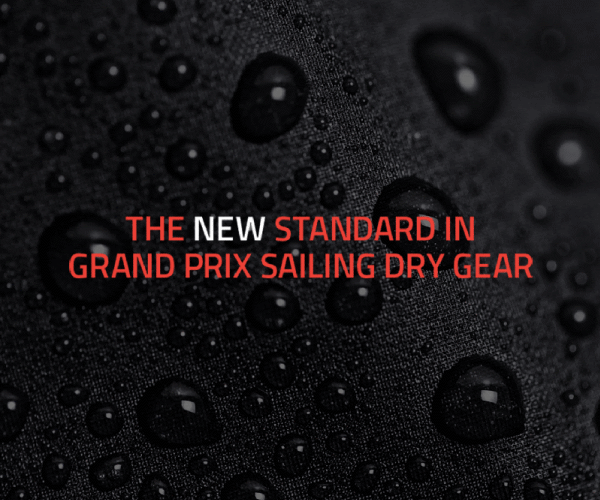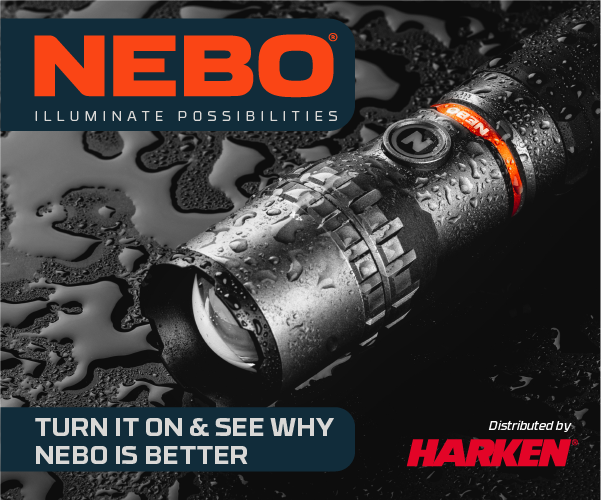





-(1)-202408140552.gif)





Boats for sale
| Rossiter Pintail Mortagne sur Gironde, near Bordeaux |
 |
| Laser 28 - Excellent example of this great design Hamble le rice |
 |
| Laser 140101 Tynemouth |
 |
List classes of boat for sale |
Fairing a polyester hull |
Post Reply 
|
Page 12> |
| Author | |
Paramedic 
Really should get out more 
Joined: 27 Jan 06 Location: United Kingdom Online Status: Offline Posts: 929 |
 Post Options Post Options
 Quote Quote  Reply Reply
 Topic: Fairing a polyester hull Topic: Fairing a polyester hullPosted: 06 Oct 15 at 8:29am |
|
at 5mm deep you'd be ok to fill with gelcoat, but i wouldn't if it was too much deeper. It's inside my personal limit for filling a crease though, it's presumably not a flat 5mm deep and the hull is presumably pretty stiff at that point.
The trouble with gelcoat is it's not very flexible, but in this case as long as the prep of the dent is OK i'm pretty confident gelcoat will be fine. Edited by Paramedic - 06 Oct 15 at 8:33am |
|
 |
|
ChrisB14 
Posting king 
Joined: 29 Oct 13 Location: London Online Status: Offline Posts: 101 |
 Post Options Post Options
 Quote Quote  Reply Reply
 Posted: 03 Oct 15 at 5:52pm Posted: 03 Oct 15 at 5:52pm |
|
It is indeed a matter of a single dent left by a previous owners wrong trolley cradle. about 5 mm deep, 200 mm long and 80 mm wide. At that depth I am assuming some of the foam has been compressed.
I am not planning on getting anywhere near the foam and everything will be done with basic hand tools (sanding block, fairing board, batten). It is a relatively low value boat that will require a new paint job at some point, so I do not intend to just cover a patch with paint. I have no idea why anyone would consider using car repair putty or anything along those lines. Seems odd. Even Plastic Padding fillers strike me as suboptimal. At the same time my understanding is that using epoxy is a bad idea when a gelcoat finish of the repair is the aim. By the sounds of it any general use of marine polyester from a composite supplier (cfs, east coast resin, etc.) should be fine?
|
|
|
B14 GBR 748 Bullet B
In build: Farr 3.7 GBR 410 (both sail number and the current number of loose parts) |
|
 |
|
Oatsandbeans 
Far too distracted from work 
Joined: 19 Sep 05 Location: United Kingdom Online Status: Offline Posts: 382 |
 Post Options Post Options
 Quote Quote  Reply Reply
 Posted: 03 Oct 15 at 11:28am Posted: 03 Oct 15 at 11:28am |
|
To me the size of the job doesnt really matter whether you are fairing up a complete hull or doing a small local refairing I'd rather use the best materials. However the reality is that for small jobs most people go for a quick polyester filler and then go straight on with top coat. Often the oroblem is that its difficult for retail customers to get small amounts of the right materials so its a trip down to halfords for the P38. Sometimes its the only practical option.
|
|
 |
|
Rupert 
Really should get out more 
Joined: 11 Aug 04 Location: Whitefriars sc Online Status: Offline Posts: 8956 |
 Post Options Post Options
 Quote Quote  Reply Reply
 Posted: 03 Oct 15 at 9:41am Posted: 03 Oct 15 at 9:41am |
|
I think we might be picturing two different jobs here, oats, one doing small dents, the other the whole hull. Either way, mind, the foam should not be on view, as you say! I had visions of filler on top of shiny gelcoat, though, which really wasn't going to work.
|
|
|
Firefly 2324, Puffin 229, Minisail 3446 Mirror 70686
|
|
 |
|
Oatsandbeans 
Far too distracted from work 
Joined: 19 Sep 05 Location: United Kingdom Online Status: Offline Posts: 382 |
 Post Options Post Options
 Quote Quote  Reply Reply
 Posted: 03 Oct 15 at 8:15am Posted: 03 Oct 15 at 8:15am |
|
Chris,
You don't want to be anywhere near the foam when you are preparing the surface. If you have done that you have a real problem. You need to only key the surface, and a good filler will stick to this. If you start to see the first fibres of the surface plies stop. Your hull will have a series of hollows where the hull shell lamiante has shrunk onto the support structure. You can either fill the hollows or try to remove the bumps to get a fair hull. You want to do the former not the latter. Using a straight edge and an old sail batten find the hollows, mark them and see how low they are. This tells you where and how much filler to apply. You will need a few goes on the filler to get it fair. ( using a fairing board not a power sander) Working hard at this stage will make the final stage easier. A high build epoxy primer is then applied faired back, sometimes a few coats are needed. Finally a 2K paint system. With a job like this you can miss out stages or use other materials to save time and or money but this is how it should be done IMO! |
|
 |
|
Rupert 
Really should get out more 
Joined: 11 Aug 04 Location: Whitefriars sc Online Status: Offline Posts: 8956 |
 Post Options Post Options
 Quote Quote  Reply Reply
 Posted: 02 Oct 15 at 8:41pm Posted: 02 Oct 15 at 8:41pm |
|
Grit that coarse should give a good enough key. Gelcoat tends to be slightly waxy, and stuff can simply peel off, especially if you have a feather edge.
|
|
|
Firefly 2324, Puffin 229, Minisail 3446 Mirror 70686
|
|
 |
|
ChrisB14 
Posting king 
Joined: 29 Oct 13 Location: London Online Status: Offline Posts: 101 |
 Post Options Post Options
 Quote Quote  Reply Reply
 Posted: 02 Oct 15 at 8:33pm Posted: 02 Oct 15 at 8:33pm |
|
I am planning to grind into the dent with 60 or 80 grit paper. If I can get away without grinding into the foam, I am happy. I wasn't aware that gelcoat was such a bad surface to bind to.
|
|
|
B14 GBR 748 Bullet B
In build: Farr 3.7 GBR 410 (both sail number and the current number of loose parts) |
|
 |
|
Rupert 
Really should get out more 
Joined: 11 Aug 04 Location: Whitefriars sc Online Status: Offline Posts: 8956 |
 Post Options Post Options
 Quote Quote  Reply Reply
 Posted: 02 Oct 15 at 8:30pm Posted: 02 Oct 15 at 8:30pm |
|
Are you planning simply to fill over the top of the gelcoat? If so, I'd say that more important than the type of resin is the preparation of the surface. Nothing really likes sticking to gelcoat.
|
|
|
Firefly 2324, Puffin 229, Minisail 3446 Mirror 70686
|
|
 |
|
ChrisB14 
Posting king 
Joined: 29 Oct 13 Location: London Online Status: Offline Posts: 101 |
 Post Options Post Options
 Quote Quote  Reply Reply
 Posted: 02 Oct 15 at 7:16pm Posted: 02 Oct 15 at 7:16pm |
|
Thanks for the helpful replies! Paramedic: any particular brand or make of polyester that you would recommend?
|
|
|
B14 GBR 748 Bullet B
In build: Farr 3.7 GBR 410 (both sail number and the current number of loose parts) |
|
 |
|
Paramedic 
Really should get out more 
Joined: 27 Jan 06 Location: United Kingdom Online Status: Offline Posts: 929 |
 Post Options Post Options
 Quote Quote  Reply Reply
 Posted: 01 Oct 15 at 6:45pm Posted: 01 Oct 15 at 6:45pm |
|
This depends on what you plan to do afterwards. If you paint the hull it doesn't really matter too much what you fill the dents with.
If you are planning to do gelcoat repairs then i wouldn't use epoxy as unless conditions are ideal you will have trouble getting the gelcoat to stick properly. The two systems are inherently incompatible and unless the epoxy is super well cured and was mixed at 100% the correct ratio you will have problems. Cooking the repair sorts most problems out, but may cause other issues on a polyester hull. Personally i'd use polyester on a polyester boat. But i'd use good quality resin, glass bubbles and silica to attain the desired consistancy. Polyester stopper or car filler is not the way forward. Polyester systems get a bad press, but if it's what the boat is built out of theres not a great deal of point in using anything better. Just use good quality products from a composites supplier, not P38 or David's Fastglass.
Edited by Paramedic - 01 Oct 15 at 6:48pm |
|
 |
|
Post Reply 
|
Page 12> |
| Forum Jump | Forum Permissions  You cannot post new topics in this forum You cannot reply to topics in this forum You cannot delete your posts in this forum You cannot edit your posts in this forum You cannot create polls in this forum You cannot vote in polls in this forum |
Bulletin Board Software by Web Wiz Forums® version 9.665y
Copyright ©2001-2010 Web Wiz
Change your personal settings, or read our privacy policy
Copyright ©2001-2010 Web Wiz
Change your personal settings, or read our privacy policy












 Printable Version
Printable Version Delicious
Delicious Digg
Digg Facebook
Facebook Furl
Furl Google
Google MySpace
MySpace Newsvine
Newsvine reddit
reddit StumbleUpon
StumbleUpon Twitter
Twitter Windows Live
Windows Live Yahoo Bookmarks
Yahoo Bookmarks Topic Options
Topic Options